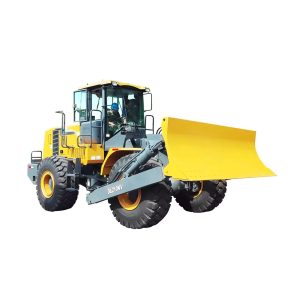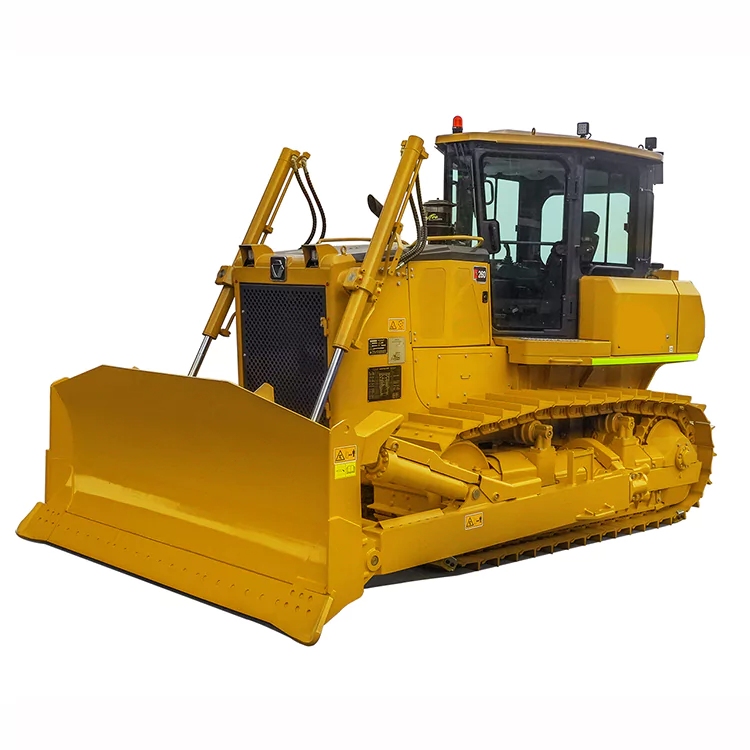Daily Bulldozer Maintenance: Tips for Crawler and Wheel Models
Industry News
2025/09/25
If you run a construction site or handle heavy earthmoving, you know a bulldozer is your workhorse. But skip daily checks, and it turns into a headache. Downtime costs money. Safety risks rise. This guide walks you through simple, effective steps to keep both crawler and wheel bulldozers in shape. We’ll cover why it matters, what to inspect, and how to handle common issues. Stick to this, and your machine lasts longer, works better.
The Basics of Bulldozer Types
Bulldozers come in two main styles. Each suits different jobs, but both need regular care.
Crawler Bulldozers: Built for Tough Terrain
These machines use tracks like tanks. They grip soft ground well. Ideal for muddy sites or steep slopes. Tracks spread weight, so they don’t sink.
Daily care focuses on the undercarriage. Dirt builds up fast. Clean it to avoid wear. Check tension—too loose, and tracks slip. Too tight, parts break early.
Wheel versions differ here. No tracks mean less mud worry, but tires need air checks.
Wheel Bulldozers: Speed on Firm Ground
Wheels make these faster on roads or hard surfaces. They move quick between spots. Good for urban work or flat land.
Tires are key. Look for cuts or low pressure. Rotate them to even wear. Unlike crawlers, wheels handle less rough stuff but need less track fixes.
Both types share engine and blade care. Know your model to tweak the routine.
Why Daily Checks Pay Off
A quick walk-around saves big later. Spot problems early.
Cutting Down on Breakdowns
Stats show maintained machines run 25% longer. Small leaks or loose bolts lead to major fails if ignored. Daily looks catch them.
For crawlers, undercarriage issues cause half of downtime. Wheels? Tire problems top the list.
Boosting Safety on Site
Faulty brakes or lights? Accidents happen. Checks ensure everything works. Operators stay safe. Crew too.
One study notes 30% fewer incidents with routine upkeep. Worth the time.
Saving Money Long Term
Repairs cost less when small. Fuel use drops with clean filters. Your bottom line improves.
Table of common savings:
| Area | Potential Savings | How |
| Fuel | Up to 10% | Clean air filters |
| Parts | 20-30% | Early wear detection |
| Downtime | 15-25% | Preventive fixes |
Simple habits add up.
Step-by-Step Visual Inspection
Start each day with eyes on the machine. Takes minutes.
Checking the Exterior and Blade
Walk around. Look for dents, cracks. Blade edges dull? Sharpen or replace.
On crawlers, inspect ripper teeth if fitted. Wheels: check frame for stress.
Wipe off grease buildup. It hides damage.
Under the dozer, hunt for oil spots. Hydraulic lines crack easy. Fix fast.
Crawler pins wear. Wheel hubs leak too. Note colors—black for oil, green for coolant.
Undercarriage for Crawlers
Tracks need daily love. Remove rocks stuck in. Check idlers, rollers for play.
Sprockets grind if worn. Adjust sag per manual—usually 2-3 inches.
Wheels skip this, but axles need grease.
Tires and Wheels for Wheel Models
Inflate to spec. Uneven wear? Align them.
Look for embedded debris. Rotate every 500 hours, but check daily.
Both types: clean mud off. It adds weight, strains parts.
Fluid Levels and Filters
Fluids keep things smooth. Low levels spell trouble.
Engine Oil and Coolant
Pop the hood. Dipstick shows oil level. Top up if low. Change every 250 hours, but check color daily—milky means water mix.
Coolant: look in radiator. Use right mix. Overheat kills engines.
Crawlers run hotter in dirt. Wheels cool faster on moves.
Vital for blade lift. Reservoir window shows level. Bubbles? Air leak.
Filter clogs slow response. Swap when dirty.
Fuel and Air Filters
Fuel clean? Water separates, drain it.
Air filter: shake out dust. Replace if torn.
Bullet points for quick check:
- Oil: between marks.
- Coolant: full, no leaks.
- Hydraulic: clear, right level.
- Filters: no clogs.
Do this before start-up.
Operational Tests Before Work
Fire it up. Test functions.
Starting the Engine
Listen for odd noises. Smoke? Check exhaust.
Idle smooth? Gauges in green.
Crawlers vibrate more. Wheels quieter.
Controls and Brakes
Push levers. Blade up, down quick? Steering responsive.
Brakes hold on slope. Emergency stop works.
Lights, horns: all on.
Drive short. Tracks track straight? Wheels turn easy.
No pulls or shakes.
Cleaning and Housekeeping
End day clean. Start fresh.
Cabin and Controls
Wipe dash. Clear windows. Comfort matters for long shifts.
Check seat, belts.
Exterior Wash
Hose off dirt. Crawlers need under wash. Wheels: rim clean.
Dry parts to stop rust.
Storing the Machine
Park flat. Lower blade. Shut off fuel.
Cover if outside.
Documentation and Follow-Ups
Log it all. Track patterns.
Recording Your Checks
Note date, issues. Photos help.
Spot trends—like frequent leaks.
When to Call Pros
Big fixes? Get help. Don’t risk.
Schedule deep cleans quarterly.
Introducing MachPlaza
MachPlaza stands as a trusted bulldozer supplier, focusing on exports from top Chinese makers. We handle full machines, parts, and custom needs. Our team delivers fair prices, quick ships, and strong support. Wide networks mean solutions for any job. We build lasting ties worldwide.
Conclusion
Sticking to a daily maintenance guide for your bulldozer keeps crawler and wheel models reliable. It cuts risks, saves cash, boosts output. Make it habit. Your site runs smoother. Machines last. Invest time now for payoffs later.
FAQs
How often should I follow a daily maintenance guide for my bulldozer?
Every shift start. Quick checks spot issues early, keeping crawlers and wheels in top form.
What key areas does a daily maintenance guide for bulldozer cover for crawlers?
Focus on tracks, undercarriage, fluids. Clean dirt, check tension to avoid wear.
Why include fluid checks in your daily maintenance guide for bulldozer?
Low levels cause fails. Regular looks keep engines, hydraulics running smooth on both types.
Does a daily maintenance guide for bulldozer differ for wheel models?
Yes, emphasize tires over tracks. Air pressure, wear checks prevent blowouts.
Can skipping a daily maintenance guide for bulldozer cost me?
Big time. More breakdowns, higher repairs. Routine saves in the long run.


